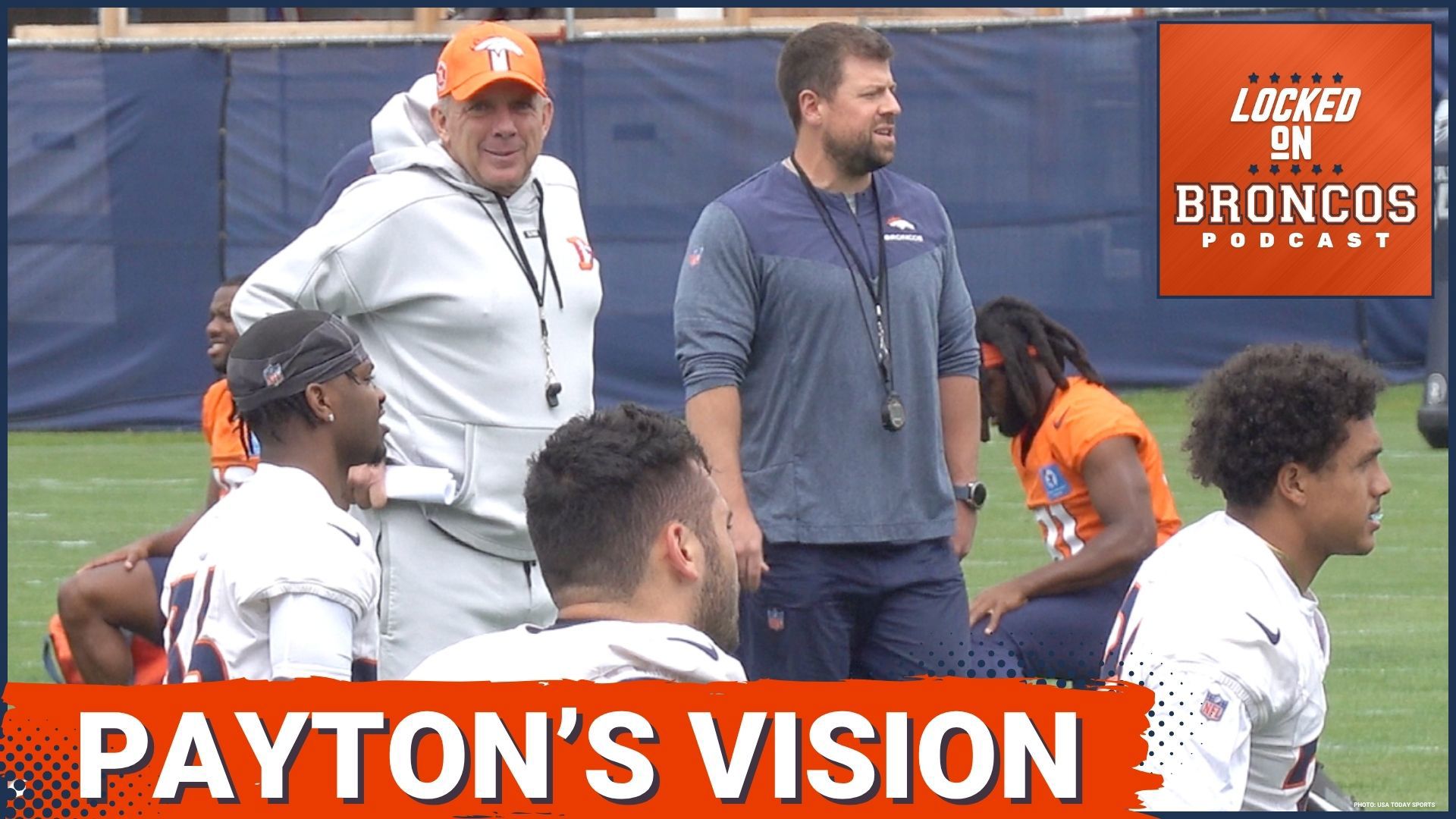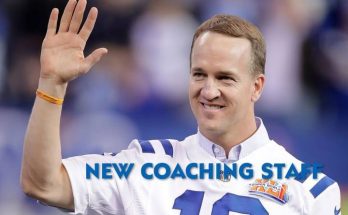When Sean Payton took over as the head coach of the Denver Broncos, the task before him was immense. A proud franchise was in disarray, plagued by inconsistent quarterback play, lackluster offensive production, and years of missteps at the executive and coaching levels. It wasn’t just about calling plays or getting through training camp. It was about rebuilding a fractured culture, earning the trust of a beleaguered fanbase, and finding a way to win in the relentlessly competitive AFC West.
Now, entering his third year with the team, Payton has found a gear of confidence that wasn’t there in Years One and Two. It’s not arrogance. It’s the calm of a man who knows the pieces are starting to align. It’s the quiet conviction of a Super Bowl-winning coach who’s been through the worst and still sees the light.
And for the first time in a long time, Denver Broncos fans have reason to believe.
From Chaos to Stability
When Sean Payton arrived in 2023, he inherited a mess. The 2022 season had been disastrous under former coach Nathaniel Hackett. Russell Wilson, the prize offseason acquisition from Seattle, had one of the worst seasons of his career. The Broncos offense looked like a car trying to start in sub-zero weather—stalled, sputtering, and frequently stuck.
Payton’s first year didn’t yield instant results. Denver finished 8-9, missing the playoffs. But under the surface, there were foundational changes: improved discipline, a cleaner operation on the sidelines, a return to accountability. Payton installed his culture brick by brick, fully aware that it would take more than a year to cleanse the residue of dysfunction.
In Year Two, the record didn’t radically improve—another 8-9 campaign—but the Broncos were competitive in nearly every game. The defense, after a rocky start, found its footing under Vance Joseph. Wilson played more efficiently, though still not close to his Seattle peak. The offense showed flashes of Payton’s vision, but inconsistency plagued them, especially in key moments.
Yet within that up-and-down second year was the emergence of a key realization: the team was buying in.
The Turning Point: Ownership and Roster Control
One of the reasons Sean Payton appears more confident in Year Three is the increased trust and control he now has within the organization. The Broncos’ ownership group, the Walton-Penner family, has given Payton significant autonomy over football operations. Unlike his first year, where he had to navigate inherited personnel, contracts, and relationships, Payton now has his fingerprints all over the roster.
In 2025, he finally pulled the plug on the Russell Wilson experiment, cutting ties with the veteran quarterback in what became a controversial yet necessary move. It cost the team heavily in terms of dead cap space, but it opened the door for a new era—a bold, clean slate at the most important position in football.
He also oversaw an aggressive draft strategy, including trading up to select rookie quarterback Bo Nix, a dual-threat signal-caller from Oregon who has impressed during offseason workouts. Payton’s belief in Nix is emblematic of his overall approach: find smart, competitive players who can grow into the system, not just big names who look good on paper.
Gone are the days of trying to “fix” someone else’s broken quarterback. Payton is building his own.
The Voice of Experience
Sean Payton isn’t guessing anymore. That’s part of the reason his confidence radiates differently now. In New Orleans, he built a perennial contender with Drew Brees and a smart front office. He saw how the sausage gets made—from late-round gems to coaching continuity to navigating the unforgiving grind of the NFL season.
In Denver, those lessons took time to apply. He had to relearn the rhythms of coaching after a year away from the game. He had to discover what worked for a locker room that had tuned out previous coaches. Now, in Year Three, he’s applying his lessons with precision.
Players have noticed the shift too.
“Coach Payton’s always had a presence,” said Broncos safety Justin Simmons. “But now it’s like everything’s clicking for him, for us. Meetings are sharper, game plans are more tailored to our strengths, and there’s just this energy that feels different.”
Offensive coordinator Joe Lombardi, who worked with Payton in New Orleans, echoed the sentiment.
“He’s back to trusting his instincts. That’s when Sean’s at his best,” Lombardi said.
Building a Bronco Identity
Part of what plagued the Broncos in the post-Peyton Manning era was a lack of identity. Were they a defensive-first team? A power running team? A West Coast offense? For nearly a decade, the answer changed year to year, depending on the coach or the quarterback.
Now, there’s clarity. The Broncos under Sean Payton are aiming to be a balanced, physical football team. Not afraid to lean on a bruising run game with Javonte Williams and rookie Audric Estimé, but also capable of attacking defenses through play-action and creative scheming. Payton’s offense is known for its complexity—shifts, motions, formations that make defensive coordinators stay up late—but he’s also simplifying things for his young players.
He’s learned to marry complexity with clarity, and that has been crucial in Year Three.
On defense, the Broncos are becoming known for aggression and opportunism. Vance Joseph’s unit, while inconsistent in stretches, forced 27 takeaways last year—a sign that players are beginning to thrive in the scheme. With veterans like Patrick Surtain II and emerging stars like linebacker Drew Sanders, the defense is no longer just keeping games close—it’s helping win them.
Draft and Development: The Sean Payton Blueprint
Payton’s growing confidence is also tied to his belief in the Broncos’ developmental pipeline. Rather than chasing high-priced free agents in desperation, the Broncos are focusing on drafting well and coaching up their young talent. In addition to Bo Nix, Denver added several promising rookies in the 2025 draft, including:
- LT Xavier Weaver – a second-round pick with elite athletic traits, expected to start immediately.
- WR Zayden Washington – a big-play threat out of Florida State who could inject speed into the receiving corps.
- DE T.J. Thompson – a high-motor pass rusher Payton called “a culture changer.”
In the past, the Broncos may have rushed these players into action. Now, Payton is emphasizing patience and process. He’s developing future stars instead of grasping for quick fixes.
“You don’t win in this league without developing your guys,” Payton said during OTAs. “You build from the inside out. That’s what we’re doing.”
A Different Demeanor
There’s also been a change in Payton’s public persona. In Year One, he came off as terse and occasionally defensive. When asked about Wilson’s struggles or the offense’s woes, he bristled at the questions. It was as if he was carrying the weight of expectations and history on his shoulders.
Now, there’s a looser, more open version of Payton. At a recent press conference, he joked with reporters about his golf game, gave a candid answer about the team’s rebuilding timeline, and even praised his young quarterback’s command of the huddle.
“I like where we are. Are we there yet? No. But I can see the path,” he said.
That quote alone says a lot.
The Road Ahead
Of course, confidence alone doesn’t win football games. The 2025 schedule isn’t kind to the Broncos. They face the Chiefs and Chargers twice, along with difficult matchups against the Ravens, Bills, and 49ers. Bo Nix will face the usual rookie growing pains, and Payton’s play-calling will be under the microscope every week.
But this time, it’s different.
Payton knows what he’s building. The roster is his. The quarterback is his. The direction is his.
He’s no longer trying to fit a round peg in a square hole. He’s designing the blueprint, hammer in hand, with a roster he believes in and a front office that believes in him.



